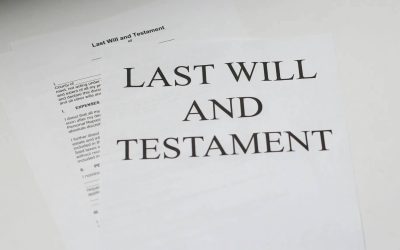Retiring to Madeira offers an exceptional experience, highlighted by the island’s stunning landscapes and mild climate, making it an attractive destination for those seeking a serene retirement. Positioned closer to Africa than Portugal in the Atlantic Ocean, Madeira Island, known as the “island of eternal spring,” offers a pleasant climate year-round, appealing to retirees globally.
This guide explores the comprehensive aspects of retiring in Madeira, including the cost of living and real estate in Funchal, healthcare and well-being, and the vibrant expat community. It addresses the necessary details to assist individuals in making an informed decision about their retirement on Madeira Island.
Cost of Living and Real Estate when retiring to Madeira
Madeira’s allure for retirees extends beyond its scenic landscapes to its surprisingly affordable cost of living and attractive real estate market. Here, we delve into the economic aspects that make Madeira a wise choice for those looking to enjoy their retirement years in comfort without undue financial strain.
Affordability in Daily Life
- General Living Costs: Madeira offers a cost-effective lifestyle, with expenses generally lower than in many Western European countries. For instance, a basic lunch in Funchal’s business district costs around €10, while essential groceries like chicken, tomatoes, and milk are priced reasonably.
- Monthly Expenses: A family of four can expect monthly costs of around €2,965, whereas a single person might spend about €1,447. These figures cover all necessities, offering a clear picture of the manageable nature of living expenses in Madeira.
Housing and Utilities
Madeira’s real estate market is diverse, ranging from affordable apartments to luxurious sea-view villas. Here’s a snapshot of current housing costs:
- Rental Prices: In Funchal, a furnished 85 m2 apartment in a premium area costs about €1,053 per month, while the same in a more average district is approximately €787.
- Utility Costs: For a couple in an 85 m2 apartment, monthly utilities average around €103, ensuring that living costs remain low even when enjoying the comforts of a larger living space.
Transportation and Miscellaneous Costs
Getting around Madeira or indulging in occasional luxuries is economically feasible:
- Vehicle Purchase: A new Volkswagen Golf costs €24,526, indicative of the reasonable automotive market.
- Public Transport: A monthly public transport ticket costs €39, providing affordable mobility across the island.
- Clothing: Retail prices, such as €65 for a pair of quality jeans or €77 for a pair of sports shoes, are comparable to other European regions.
Real Estate Investment Opportunities
Investing in property in Madeira can be quite advantageous, thanks to a wide range of options and price points:
- Property Prices: From €130,000 for a two-bedroom villa in Calheta to €1,595,000 for a luxurious three-bedroom villa in Funchal, the market caters to various budgets and preferences.
This financial landscape, marked by reasonable living, taxation and housing costs and substantial tax benefits under the NHR scheme, makes retiring to Madeira idyllic and economically sensible.
Healthcare and Well-being
Retiring to Madeira ensures access to a robust healthcare system characterized by public and private options. The island’s healthcare framework is designed to cater to the diverse needs of its residents, ensuring both affordability and quality.
Public and Private Healthcare Systems
Madeira’s healthcare landscape is supported by the Serviço Regional de Saúde (SESARAM), which operates several hospitals, clinics, and pharmacies across the island. For retirees, the Portuguese National Health Service (SNS) offers subsidized treatment costs, with many services being free for those aged 65 and above. This public system is known for its high standards and accessibility.
Insurance and Coverage
It is imperative for retirees to have health insurance to access many healthcare services, particularly in the private sector, which is known for its shorter waiting times and broader selection of specialists. Health insurance plans are reasonably priced, with costs varying based on age, health status, and existing conditions. The D7 visa, popular among retirees, requires applicants to have pre-arranged healthcare coverage, ensuring that they are well-prepared for their relocation.
Quality of Care
Portugal prides itself on having some of the most affordable yet high-quality healthcare globally. Many healthcare professionals in Madeira are proficient in English, easing communication for expat retirees. The island’s healthcare facilities, including the only assisted living facility in Madeira, Dilectus, located in Funchal, are well-equipped to provide comprehensive medical care.
Accessibility and Affordability
The healthcare services in Madeira strike a balance between accessibility and cost-effectiveness. Residents can choose between public and private healthcare, ensuring they can select the option that best fits their needs and budget. Public healthcare might involve nominal fees for certain services for adults under 65 but remains largely accessible to all residents.
This environment of comprehensive, accessible, and affordable healthcare makes retiring to Madeira an excellent choice for those seeking peace of mind in their later years.
The Climate of Perpetual Spring
Madeira, often celebrated as the “island of eternal spring,” is renowned for its mild yearly climate. This section delves into the various aspects of Madeira’s weather, providing retirees with a clear picture of what to expect regarding temperature, rainfall, and sunshine.
Temperature Variations Across the Year
Madeira experiences various temperatures, contributing to its label as a place of perpetual spring. The average high temperatures vary from a cool 14°C (57°F) in January to a comfortable 23°C (73°F) in August. Conversely, the low temperatures range from 11°C (52°F) in the cooler months to 19°C (66°F) during the summer nights, ensuring that the climate remains pleasant throughout the year.
Rainfall and Sunshine Patterns
The island’s rainfall and sunshine also play a significant role in shaping its mild climate:
- Rainfall: January is the peak of the rainy season, with an average rainfall of 108mm, while the months of July and August are notably dry, each with an average of only 1mm of rain.
- Sunshine: The amount of daily sunshine varies significantly throughout the year. September offers the most sun, with an average of 8 hours of sunshine per day, whereas the winter months from November to February see around 5 hours.
Sea Temperature and Microclimates
The average sea temperature around Madeira is another appealing factor for beach enthusiasts, ranging from 18°C (64°F) in February to a warm 24°C (75°F) in September. Additionally, the island’s diverse microclimates, influenced by its mountainous topography and warm ocean currents, ensure varied weather patterns across different regions. This diversity allows retirees to choose a locale on the island that best suits their weather preferences.
Wind and Weather Comfort
Madeira’s climate is tempered by cooling winds that help maintain comfortable temperatures during the hot, dry summers. These winds contribute to an environment that supports year-round outdoor activities without the discomfort of extreme heat.
This climate profile of Madeira highlights the overall pleasant weather and underscores the island’s suitability for retirees seeking a destination with a stable, comfortable climate.
Connecting with the Expat Community
Madeira’s expat community is a vibrant and integral part of the island’s social fabric, offering newcomers a warm and inclusive environment. A private Facebook group boasting over 23,000 members, except for tax advisory, it is a vital resource for expats and locals. This platform facilitates the exchange of valuable information, experiences, and advice, enhancing the ease of settling into life in Madeira.
Popular Expat Areas and Retirees in Madeira
Funchal, Calheta, Ponta do Sol, Ribeira Brava, and Santana are highly favoured by expats. These areas are renowned for their stunning natural beauty, mild climate, and modern amenities, which together with opportunities for engaging in various outdoor activities, make them ideal for expatriates.
Visa Options for Expats
Expats looking to move to Madeira have several visa options available, including the Portugal D7 Visa, Portugal Digital Nomad Visa, and D2 Visa Portugal. These visas cater to different needs and purposes, facilitating a smooth transition to life on the island.
Expat Life in Madeira: A Case Study
Alan, an expat from the Midwest, shares his family’s experience moving to Madeira on a D7 retirement visa. Their insights cover various aspects such as the moving process, housing, language barriers, local activities, cultural integration, weather conditions, and future plans, providing a comprehensive overview for potential expats.
Language and Hospitality
Madeira is not only known for its scenic beauty but also for the hospitality of its residents. Many locals speak multiple languages including English, German, and French, which significantly eases communication and helps build new friendships.
Educational Facilities for Expat Families
The presence of three international schools on the island makes Madeira an attractive destination for expat families, ensuring access to quality education for their children.
This combination of a supportive expat community, practical visa options, and ample living amenities makes Madeira a top choice for those considering retirement or relocation.
Exploring the Island: Activities and Amenities
Madeira Island, a paradise for outdoor enthusiasts and culture seekers alike, offers many activities and amenities that make retiring here an adventure. From the rugged trails of the Laurisilva forest to the serene beaches and vibrant cultural scenes, there is no shortage of experiences to enrich your lifestyle.
Outdoor Adventures
- Hiking and Nature: Madeira is renowned for its extensive network of trails, including the famous Levadas walks, which run alongside irrigation channels through lush forests and waterfalls. Notable hikes include Pico do Arieiro to Pico Ruivo, offering breathtaking views from the highest peaks on the island.
- Golfing: The island accommodates golf enthusiasts with two 18-hole courses, each designed to challenge and delight players while offering scenic vistas of the Atlantic.
- Water Activities: Dive into activities like swimming in natural tidal pools at Porto Moniz, scuba diving, and enjoying the sandy stretches at Calheta and Ribeira Brava Beach.
Cultural Immersion
- Local Cuisine and Wine: Explore the rich flavours of Madeira’s cuisine, influenced by Portuguese and African culinary traditions. Indulge in wine tastings featuring the island’s famous sweet and unfortified wines, perfectly paired with local seafood.
- Art and Festivals: Funchal’s Rua de Santa Maria showcases a vibrant display of painted doors turned into art pieces. Seasonal festivities include the Madeira Christmas Market, a dazzling array of lights, regional products, and traditional foods.
Transportation and Accessibility
Madeira’s compact size makes it easy to explore. Efficient taxi services, an extensive bus network, and scenic cable car rides ensure that all corners of the island are accessible. Cristiano Ronaldo International Airport and regular ferries provide convenient connections to mainland Europe.
Living Locales
- Funchal: The capital city is known for its historical sites, vibrant markets, and cafes.
- Câmara de Lobos: Offers a quaint fishing village atmosphere.
- Ponta do Sol: Ideal for those who enjoy sunny days and stunning sunsets.
- Santana: Famous for its traditional thatched-roof houses.
Each area of Madeira offers unique attractions and a welcoming community, making it easy for retirees to find the perfect spot to call home. Whether it’s the adventure, the culture, or the tranquillity of island life that appeals, Madeira provides a fulfilling backdrop for retirement.
Conclusion about Retiring to Madeira
Throughout this comprehensive guide on retiring to Madeira, we’ve journeyed through the many aspects that make retiring to Madeira a captivating prospect. From its affordable cost of living and vibrant expat community to the high-quality healthcare system and the island’s eternal spring climate, Madeira presents an unparalleled mix of benefits for those seeking a serene yet enriching retirement life. The exploration of real estate opportunities and insights into the cultural and outdoor adventures awaiting on the island underscores the practical and enjoyable facets of making Madeira your home in retirement.
Reflecting on these points compels a deeper consideration for retiring to Madeira and as a place where life’s second act can be embraced with vigour and excitement. The possibility of integrating into a supportive expat community, indulging in the local cuisine, and participating in many outdoor activities further highlight the island’s appeal. As we conclude, it’s evident that Madeira offers a lifestyle where one can enjoy the fruits of their labour in a setting that promises beauty, adventure, and tranquillity, making it more than just a place to retire—it’s a place to live truly.
FAQs
Q: What makes Madeira an attractive retirement destination? A: Madeira is a top choice for retirees due to its pleasant year-round climate, stunning scenery, and friendly community vibe. The cost of living is reasonable, there are thriving expat communities, and a plethora of activities to enjoy, all contributing to a fulfilling retirement experience.
Q: Is Madeira suitable for senior residents? A: Madeira caters to individuals of all ages, including seniors. It’s not known for a bustling nightlife scene but rather for its array of activities such as walking along the levadas (irrigation channels) and diving, among others.
Q: What factors contribute to Madeira’s affordability? A: Madeira’s cost of living is relatively low compared to mainland Portugal, partly because of the subsidies provided by the local government, which are funded by tourism revenue and the Portuguese national budget. To save money, following the local residents’ lead on where to shop and dine can help you spend less.
Q: Where should one stay when exploring Madeira? A: Funchal, the capital city of Madeira, is the most recommended place to stay when visiting. It’s the largest city in the archipelago and offers convenient access to various attractions, making it an ideal base for exploration.
The founding of Madeira Corporate Services dates back to 1996. MCS started as a corporate service provider in the Madeira International Business Center and rapidly became a leading management company… Read more




